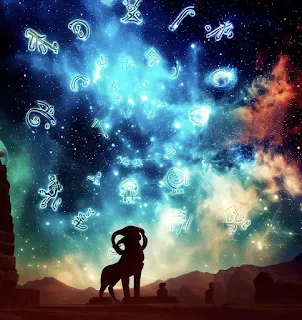Egyptian Astrology Calendar Explained
In ancient Egyptian astrology, there isn't a specific system of zodiac signs like those commonly known in Western astrology.
Ancient Egyptians had a form of astrology that was closely tied to the Egyptian calendar and the cycles of the Nile River.
The ancient Egyptian calendar consisted of 12 months, each comprising 30 days, with an additional five days added at the end of the year. Each month was associated with a particular deity, and individuals born during a specific month were believed to possess certain characteristics and traits associated with that god or goddess.
The twelve months of the ancient Egyptian calendar held significance in relation to the deities they were linked to.
The first month, called Thoth, spanned from January 1 to January 30 and was associated with Thoth, the god of wisdom and knowledge.
The following month, Geb, which extended from January 31 to February 29, was associated with Geb, the god of the Earth.
The month of Osiris, from March 1 to March 30, aligned with Osiris, the god of the afterlife and rebirth.
The month of Isis, from March 31 to April 29, was associated with Isis, the goddess of magic and fertility.
Amun, the king of the gods, was linked to the month spanning April 30 to May 29.
Hathor, the goddess of love and beauty, was connected to the month from May 30 to June 28.
The month of Ptah, from June 29 to July 28, was associated with Ptah, the creator god and patron of craftsmen.
Sekhmet, the lioness-headed goddess of war and healing, was connected to the month of July 29 to August 27.
Bastet, the goddess of home, fertility, and protection, was linked to the month from August 28 to September 26.
Ma'at, the goddess of truth, justice, and balance, was associated with the month spanning September 27 to October 26.
Horus, the god of the sky and kingship, was connected to the month from October 27 to November 25.
Lastly, the month of Anubis, from November 26 to December 25, aligned with Anubis, the god of embalming and the guardian of the dead.
The Ancient Egyptian calendar was closely tied to the natural cycles of the Nile River and the Egyptian calendar.
The annual flooding of the Nile was a significant event that marked the beginning of the agricultural year and influenced the lives of the Egyptians. Astrology played a role in understanding and predicting these cycles.
Rather than focusing on zodiac signs, ancient Egyptian astrology revolved around the worship of various deities. Each month of the Egyptian calendar was linked to a specific god or goddess, and individuals born during that month were believed to inherit the qualities and characteristics associated with the corresponding deity.
Ancient Egyptians believed that the gods and goddesses exerted a direct influence on human personalities and destinies. By understanding the qualities attributed to each deity, astrologers and priests sought to interpret these influences and provide guidance to individuals based on their birth month.
Astrological readings in ancient Egypt were personalized and tailored to the individual's birth month, considering the deity associated with that month. These readings could provide insights into a person's strengths, weaknesses, and potential destiny.
The interpretation of astrological charts and readings was primarily the responsibility of priests and astrologers who possessed specialized knowledge and were seen as mediators between the divine realm and the human world. These priests used astrological practices to advise pharaohs, nobles, and the general population.
Ancient Astrology played a significant role in ancient Egyptian decision making. Pharaohs and rulers often consulted astrologers before embarking on important endeavors such as military campaigns, construction projects, or religious ceremonies. Astrological insights were considered essential in determining favorable or unfavorable timing for various activities.
Astrology was intertwined with religious rituals and offerings in ancient Egypt. To appease and seek the favor of specific deities associated with their birth month, individuals would participate in religious ceremonies, make offerings, and perform rituals dedicated to those gods or goddesses.
Ancient Egyptian astrology remained an integral part of Egyptian culture and religion for thousands of years. It evolved and adapted over time, incorporating influences from neighboring cultures such as Greek and Roman astrology.






